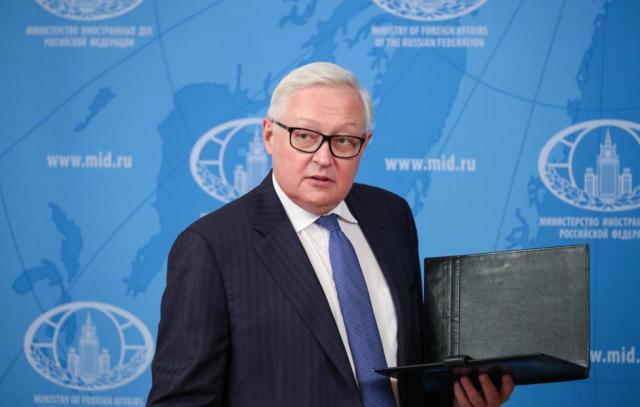Moscow does not abandon the DSNV, remains committed to the treatyMoscow.
February 6. INTERFAX - The United States itself is very free to handle issues related to the Strategic Offensive Arms Treaty (DSNV), Russian Deputy Foreign Minister Sergei Ryabkov said on Monday.
"The Americans themselves, as we have repeatedly noted, are very free with their obligations under the DSNV," he told reporters in Moscow, commenting on Washington's accusations against the Russian Federation last week.
"As usual, Washington is shifting from a sore head to a healthy one, accusing us now of neglecting our obligations under the DSNV. But we are not renouncing the treaty, we are committed to it, we fully comply with the central provisions of the treaty on numerical limits on carriers and warheads, we have always done this and will continue to do so," Ryabkov said.
"We continue to work on other provisions of the agreement, including those related to information exchange within its framework. And we hope that similar steps will follow here from the American side, demonstrating in practice that the United States is ready to adhere to this document," the deputy minister stressed.
In August 2022, Russia notified the United States that it was temporarily withdrawing its facilities from inspection activities under START-3. In a statement, the Russian Foreign Ministry noted that "such actions are provided for in paragraph 5 of Section I of Chapter Five of the Protocol to the START Treaty." "They can be undertaken in exceptional cases and for purposes that do not contradict the Contract. The Russian Federation is forced to resort to this measure now due to Washington's persistent desire to achieve the restart of inspection activities on conditions that do not take into account existing realities, create unilateral advantages for the United States and actually deprive the Russian Federation of the right to carry out inspections on American territory," the statement of the Russian Foreign Ministry said at the time.
In March 2020, the United States and the Russian Federation suspended inspections at facilities due to the COVID-19 coronavirus pandemic.

